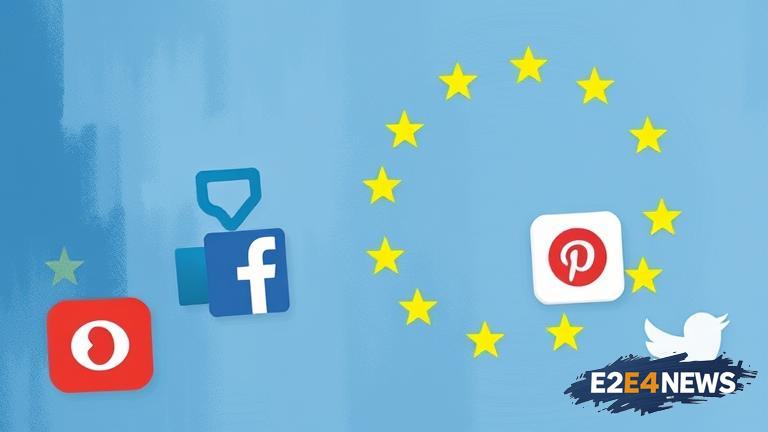The European Union has been pushing for stricter regulations on social media platforms to remove hate speech and disinformation. However, US tech giants such as Facebook, Twitter, and Google are opposing these penalties, citing concerns over freedom of speech and censorship. The EU has proposed fines of up to 4% of a company’s global turnover for failing to comply with the regulations. The tech companies argue that these penalties are too harsh and could lead to over-censorship. They also claim that the EU’s definition of hate speech is too broad and could be used to stifle legitimate speech. The EU, on the other hand, argues that the tech companies have not done enough to remove hate speech and disinformation from their platforms. The EU’s concerns were heightened after the US presidential election, where it was alleged that Russian trolls used social media to spread disinformation and influence the outcome. The tech companies have been working to remove hate speech and disinformation from their platforms, but the EU feels that more needs to be done. The EU’s proposed regulations would require social media companies to remove hate speech within 24 hours of it being reported. The tech companies are also concerned about the impact of these regulations on smaller companies and startups, which may not have the resources to comply. The EU’s regulations would also require social media companies to be more transparent about their content moderation policies and to provide more information about the ads that are running on their platforms. The tech companies are arguing that these regulations would be too burdensome and could stifle innovation. The EU, however, believes that these regulations are necessary to protect citizens from the harmful effects of hate speech and disinformation. The debate between the EU and the US tech giants is ongoing, with no clear resolution in sight. The EU’s proposed regulations are part of a broader effort to regulate the tech industry and ensure that it is operating in a way that is fair and transparent. The US tech giants are not the only ones opposing the EU’s regulations, with some free speech advocates also arguing that the regulations are too broad and could be used to stifle legitimate speech. The EU’s regulations are expected to be finalized later this year, and it is unclear how the tech companies will respond if they are implemented. The EU’s efforts to regulate the tech industry are being closely watched by other countries, which are also considering similar regulations. The US tech giants are likely to continue to oppose the EU’s regulations, citing concerns over freedom of speech and censorship. The EU, however, is likely to continue to push for stricter regulations, citing concerns over the harmful effects of hate speech and disinformation.
